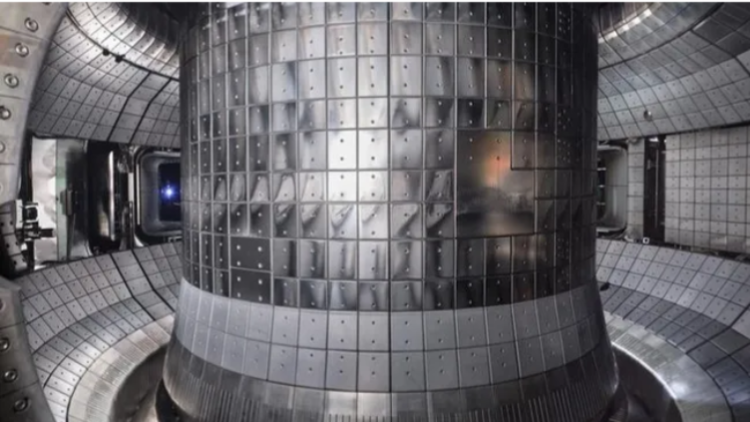
Newsnomics ANGELINA AJAY reporter |
South Korea sets a new world record by sustaining 100 million degrees Celsius temperature during a nuclear fusion experiment for an extended period of time which is a groundbreaking milestone for the futuristic nuclear fusion technology.
South Korea's KSTAR Research Center’s dedicated hard work resulted in the KSTAR device, dubbed an "artificial sun" by the KFE by sustaining plasma temperature of 100 million degrees Celsius for 48 seconds during tests conducted between December 2023~ February 2024, surpasses the previous record of 30 seconds set in 2021.
Nuclear fusion seeks to replicate the reaction that makes the sun and other stars shine, by fusing together two atoms to release the large amounts of energy. The fusion promises the provision of limitless energy without contributing to planet-warming carbon pollution. However, performing the technical process on Earth is extremely challenging as per CNN report.
The core of achieving fusion energy lies in tokamak, ‘a donut shaped reactor in which hydrogen variants are heated to extraordinarily high temperatures to create a plasma- a state of matter where atomic nuclei and electrons are separated.
High temperature and high-density plasmas, in which reactions can occur for long durations, are vital for the future of nuclear fusion reactors, said Si-Woo Yoon, director of the KSTAR Research Center at the Korean Institute of Fusion Energy (KFE).
Sustaining these high temperatures “has not been easy to demonstrate due to the unstable nature of the high temperature plasma,” he told CNN, which is why this recent record is so significant.
Furthermore, KSTAR, is aiming to maintain the plasma temperatures of 100 million degrees for 300 seconds by 2026, which is a "critical point" for scaling up fusion operation. Director Si-Woo Yoon said.
South Korean Scientists sustained temperatures of 100 million degrees Celsius — seven times hotter than the sun’s core — during a nuclear fusion experiment, an important step forward that will supports future fusion energy development, with implications for international projects in France, the US and England.
The groundbreaking milestone in South Korean history will be beneficial for the development of ITER (the International Thermonuclear Experimental Reactor) in Southern France, the world’s biggest tokamak, aims to prove the feasibility of fusion.
KSTAR’s work “will be of great help to secure the predicted performance in ITER operation in time and to advance the commercialization of fusion energy,” said Si-Woo Yoon.
A new record will breakthroughs in nuclear fusion research, including a successful reaction at the National Ignition Facility in the United State made history of producing 69 megajoules of fusion energy for five seconds, roughly enough to power 12,000 homes for the same amount of time.
South Korean groundbreaking milestone will support future fusion energy development near Oxford, England.










